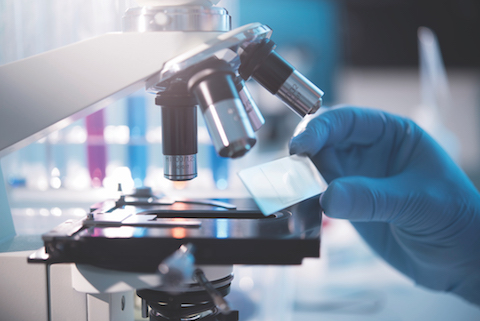预约演示
AI model shows promise in detecting lung cancer earlier
2023-05-05

Preview
来源: PMLiVE
A new UK study has revealed the potential of using artificial intelligence (AI) to help doctors diagnose lung cancer earlier.
LIBRA, which was led by researchers from the Royal Marsden NHS Foundation Trust, the Institute of Cancer ResearchCancer Research, London, and Imperial College London, used data from the CT scans of nearly 500 patients with large lung nodules – abnormal growths – to develop an AI model.
The Royal Marsden Cancer Charity, the National Institute for Health and Care Research, RM Partners and Cancer Research UK also supported the study.
To assess how effective the new model was at predicting cancer, the team used a measure called the area under the curve (AUC). An AUC of one would indicate a perfect model, while 0.5 would be expected if the model was randomly guessing.
The results, which have been published in the Lancet’s eBioMedicine, indicate that the model was able to identify each lung nodule’s risk of cancer with an AUC of 0.87.
The performance improved on the Brock and Herder score – two tests currently used in clinic.
It was also found that the model could help doctors make quicker decisions about patients with abnormal growths that are currently deemed medium-risk by current tests.
When combined with Herder, the researchers’ model was able to identify high-risk patients in this group and would have suggested early invention for 82% of the nodules that went on to be diagnosed as cancerous.
Lung cancer is the leading worldwide cause of cancer mortality, accounting for 21% of cancer deaths in the UK.
Patients diagnosed with early-stage disease can be treated more effectively, but recent data shows over 60% of lung cancers in England are diagnosed at either stage three or four.
The researchers hope the technology will eventually be able to speed up the detection of the disease by helping to fast-track high-risk patients to treatment, and by streamlining the analysis of patient scans.
Dr Benjamin Hunter, clinical oncology registrar at the Royal Marsden NHS Foundation Trust and clinical research fellow at Imperial College London, who is funded by Cancer Research UK, said: “In the future, we hope it will improve early detection and potentially make cancer treatment more successful by highlighting high-risk patients and fast-tracking them to earlier intervention.
“Next, we plan to test the technology on patients with large lung nodules in clinic to see if it can accurately predict their risk of lung cancer.”
更多内容,请访问原始网站
文中所述内容并不反映新药情报库及其所属公司任何意见及观点,如有版权侵扰或错误之处,请及时联系我们,我们会在24小时内配合处理。
靶点
-药物
-生物医药百科问答
全新生物医药AI Agent 覆盖科研全链路,让突破性发现快人一步
立即开始免费试用!
智慧芽新药情报库是智慧芽专为生命科学人士构建的基于AI的创新药情报平台,助您全方位提升您的研发与决策效率。
立即开始数据试用!
智慧芽新药库数据也通过智慧芽数据服务平台,以API或者数据包形式对外开放,助您更加充分利用智慧芽新药情报信息。




